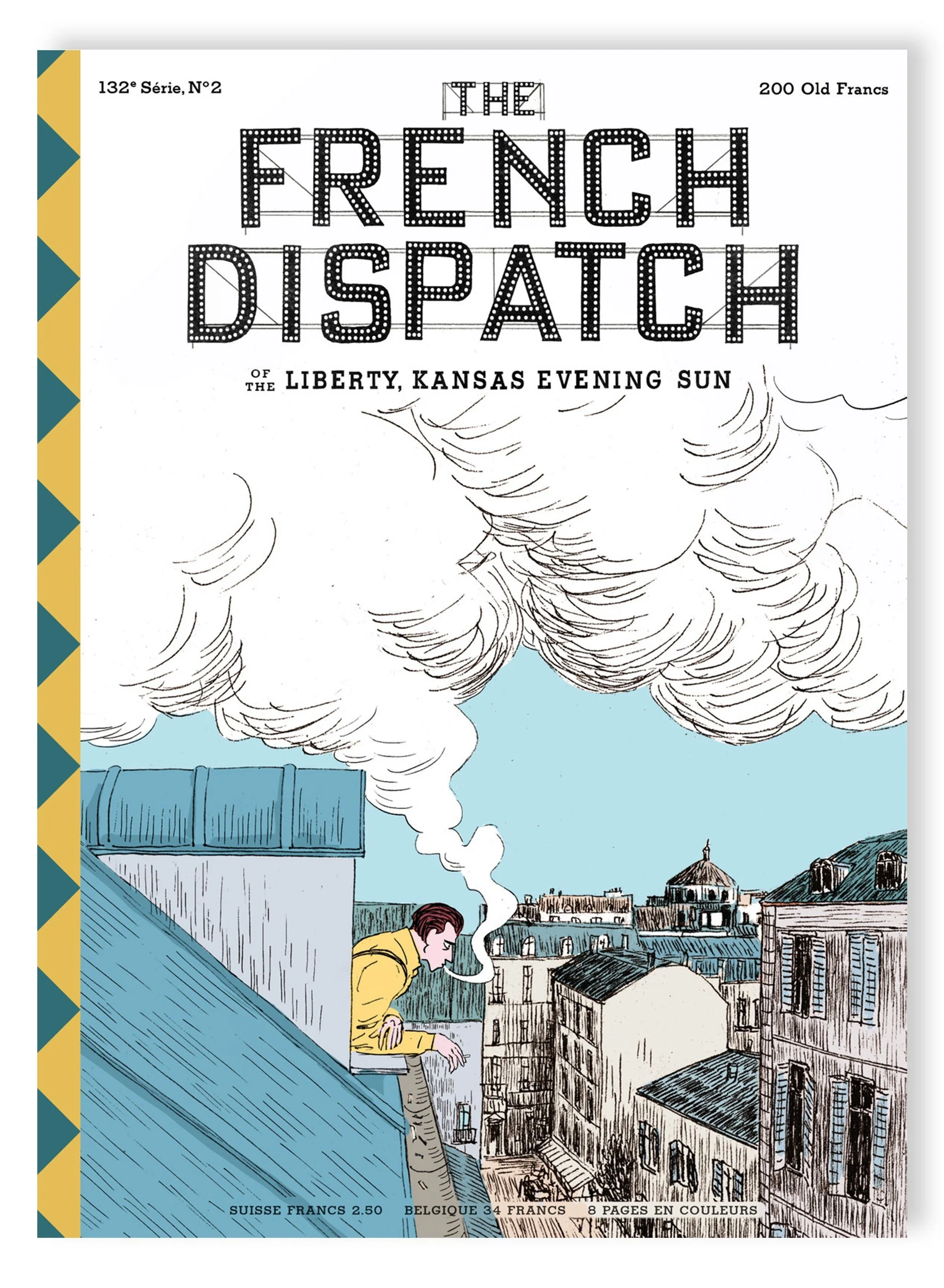Another Time, Since Dispatched
Wes Anderson’s Loving Eulogy to the Illustrated Magazine.
As a photo historian, I am quite familiar with the importance and legacy of the illustrated magazine be it the French Vu or German UHU, or even just the good old Life Magazine, these publications were responsible for building the modern psyche. Dispatches brought far away places into our living rooms, making our world marginally smaller. Wes Anderson’s film The French Dispatch, depicts not only the story of such a magazine, but the type of stories which would appear inside. The New Yorker even did a lovely piece on their writers and issues which inspired Anderson’s movie.
Whether your favorite was the New Yorker, LIFE, or something more chic like Vogue, it is obvious that their days are passed. The long form essay—made famous by thousands such as Truman Capote—was an experience I miss longingly, but whose length and frequency makes them utterly incompatible with the age of the internet and the smart phone. While I watched this film and savored the references and an attempt to rekindle that long lost feeling of wasting a morning away voraciously reading an exposé from The New York Times Magazine it is clear that while we may (and should) lament the passing of this art form from its zenith, the time has come to welcome and champion a new expression. One that can connect to our time as the illustrated essay once called upon us to dream of distant places and decadent lives.
Our culture is not like the one proceeded it and its values not yet forged. The amount of knowledge at our fingertips is so total, so absolute that it may only be communed with in small intense bursts. Long-form journalism cannot exist in this territory, particularly in the social media landscape that, like a child tugging on her mother’s hem, is always begging for our attention elsewhere. Thus far, this plain has only reaped the ‘hot-take’ and the meme, but as platforms such as Tik Tok and its ilk lure ever more users to the cool glow of their phones there is no reason to think a more mature form of expression is already building. So, while we may be anxious, only denial could convince us to believe change has not already set out to its task. Hearing, in the film, the poetic pronouncements of the young revolutionary Zeffirelli as the final addendum to his ‘Revisions of a Manifesto’, how sad I was to feel myself cringe at its idealistic fancy, its unironic optimism. Adorno long ago proclaimed the death of poetry in the shadow of the Holocaust and perhaps now poetry’s sincerity can no longer exist outside of the forced air of the bio-dome, heavy as our polluted air hangs.
While we have traded the smoke laden rooms where such devilish dealers concoct their geniuses, as Anderson depicts In his first act through the story of the homicidal artist Moses Rosenthaler, for the speculation of NFTs and crypto, I suspect we are still leagues from this epoch’s final form. This expression is still in its infancy and while some of its character has already been determined by the nature of this era, its gestation is still future, still impressionable. An attitude The French Dispatch reminds us is the control, however fleeting, we have in our crash course with the future and it is perhaps a challenge we must grasp more confidently.
Faced by the death of the old forms, our grief should not linger: their time is past. While there is much to be celebrated and much to be learned from the art of our predecessors, there is nothing to be resuscitated. Now is a time for exploration and for the boldness and conviction it requires. The past, however deadly, must always remain there; lest it haunt all our future movements with the spectre of hesitation. Our energies must be rooted in the present where they live and thrive, or better yet, in the future where they grow and divide. Our time is present — as it has been for time immemorial — and thus does not ask what the future should be, only how it will be. There is opportunity like never before to embrace an art that communicates through the web of wire which connect us like mycelial networks and expresses the values and human dreams which seem everlasting, that the reactionaries always find precarious. There is no need to guess what it will be, only the will to keep creating. Some will call it magic, but we will know its truth for we invneted it.


